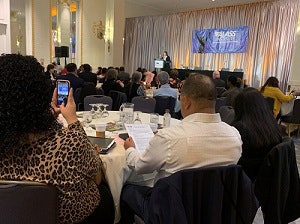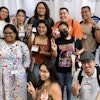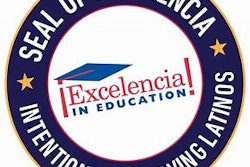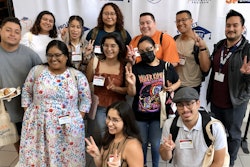Excelencia in Education celebrated its 15th anniversary with its Accelerating Latino Student Success Institute – or its quinceañera as Excelencia in Education President Sarita Brown put it. Higher education professionals gathered in Washington D.C. to examine the needs of Latino students, from federal policies to the faculty in their classrooms.
The event began Thursday night with an announcement of the 2019 Examples of Excelencia, four programs selected by the organization as models for creative, evidence-based strategies to improve retention rates for Latino students. This year, Excelencia in Education received nominations from 166 programs from 32 states, D.C. and Puerto Rico.
On Friday morning, the group reconvened for a full day of sessions to explore what makes these programs successful, and most importantly, scalable.
“What we believe most people in your seats need is a clarity about the strategic choices that were made to design the program, to build a program, the nature of how those programs are sustained and the capacity we can create together to replicate the tactics,” said Brown, addressing the crowd of higher education leaders.
The opening panel featured representatives from the four Examples of Excelencia to discuss how they implemented their programs and the outcomes for Latino students. One theme repeatedly surfaced – community.
“The biggest factor of success is the building of community,” said Dr. Alexander Rudolph, a professor of physics and astronomy at California State Polytechnic University, Pomona. He leads his university’s graduate-level Cal-Bridge Program, a collaboration between nine University of California schools and 16 California State University campuses to increase the number of underrepresented students in physics and astronomy.
Latinos make up 60 percent of Cal-Bridge scholars, who receive mentorship from both University of California and Cal State University system professors. But their peers are an important part of the program, Rudolph said. Latino students can feel isolated in STEM programs, let alone niche fields like astronomy, but “having others like them that want to do something not so typical is very, very important to them,” he added.














